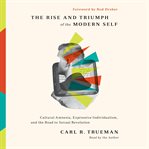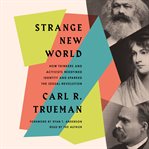Review by Choice Review
This timely, well-researched work explains the historical and intellectual origins of sexual identity politics in the West, particularly in the US. Trueman's central argument is that the self has undergone a radical transformation within the last few centuries. His narrative begins with Rousseau, highlighting the latter's view that society is the source of all human problems. Trueman (Grove City College) then proceeds with a fascinating discussion of the 19th-century Romantics, including Wordsworth, Shelley, and Blake, who placed sexual freedom at the heart of political freedom. Nietzsche and Marx are also crucial to this account for their views on power, oppression, and subjugation. Next up are Freud and the New Left icons (Reich and Marcuse), who located "oppression as a fundamentally psychological category and sexual codes as its primary instruments." To frame and further analyze this narrative, Trueman relies on concepts such as "psychological man," "expressive individualism," "anticulture," and others developed in the works of philosophers Alasdair MacIntyre and Charles Taylor, as well as sociologist Philip Rieff. Trueman generally avoids polemics, despite his disagreements with many aspects of identity politics. This work is sure to be influential and deserves to be widely read. Summing Up: Recommended. Upper-division undergraduates. Graduate students and faculty. --Stephen Wolfe, Louisiana State University
Copyright American Library Association, used with permission.
Review by Publisher's Weekly Review
Trueman (The Creedal Imperative), an Orthodox Presbyterian minister and religious studies professor at Grove City College, delivers a sweeping, preachy condemnation of modern conceptions of the self, with particular emphasis on new understandings of gender, sex, and sexuality. Trueman uses theoretical frameworks developed by 20th-century sociologist Philip Rieff and contemporary philosophers Charles Taylor and Alasdair MacIntyre to argue that late-20th-century changes in the Christian West's expectations around human gender and sexuality were driven by "ethical subjectivism" and "anarchic emotive morality." Trueman traces the changes he deplores back to Jean-Jaques Rousseau, Karl Marx, and Friedrich Nietzsche, whose "assaults on any static or transcendent notion of human nature" have defined Western conceptions of the self. He then turns a sharply critical eye to the work of Sigmund Freud, who, the author believes, made "sex the central element in what it means to be human." In the final section, Trueman's argument against the influence of LGBTQ people on society--such as that recognition of a broader range of human gender identities and sexual desires will lead to cultural acceptance of pedophilia and incest--will undoubtedly offend. While deeply researched and meticulously explained, this polemic will only appeal to readers who already agree with Trueman. (Nov.)
(c) Copyright PWxyz, LLC. All rights reserved


